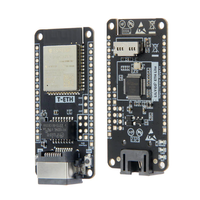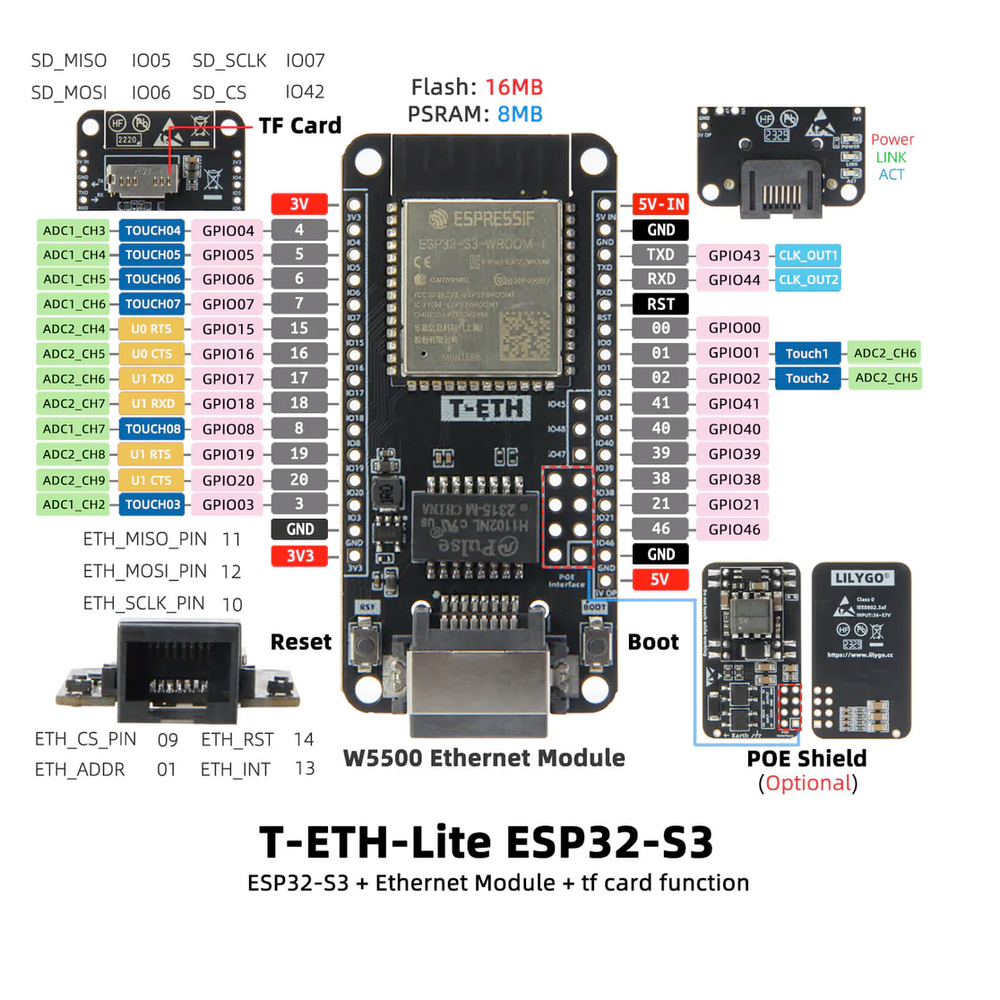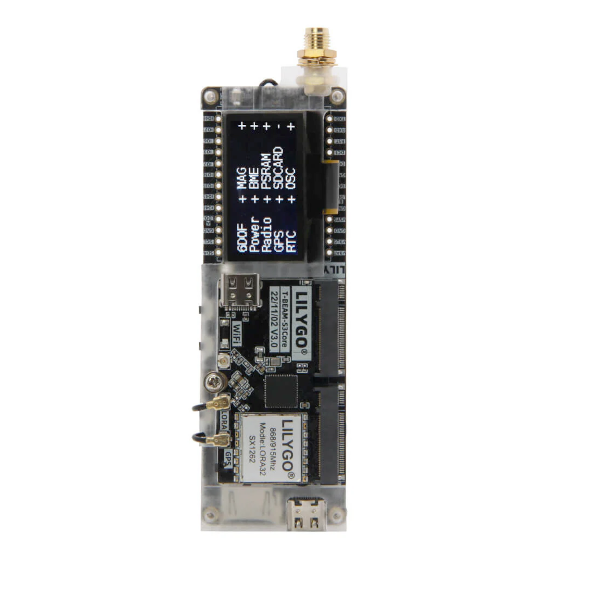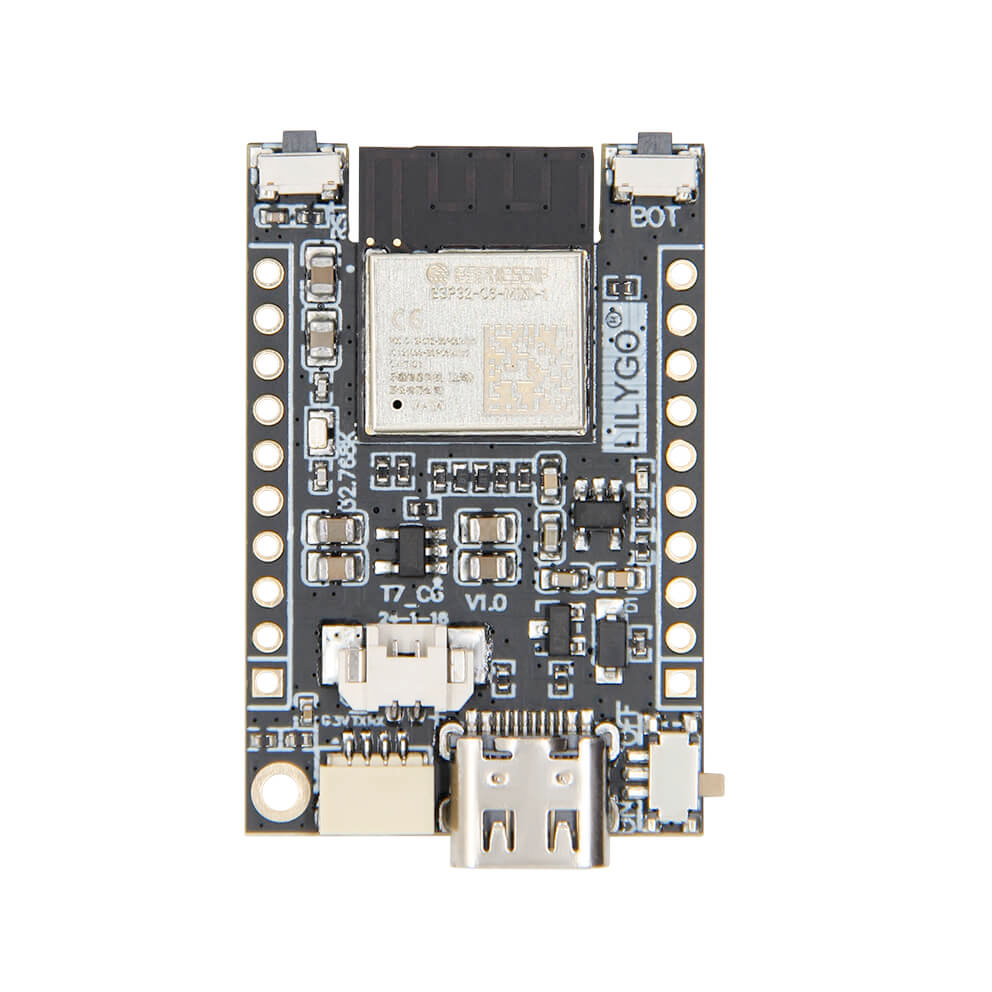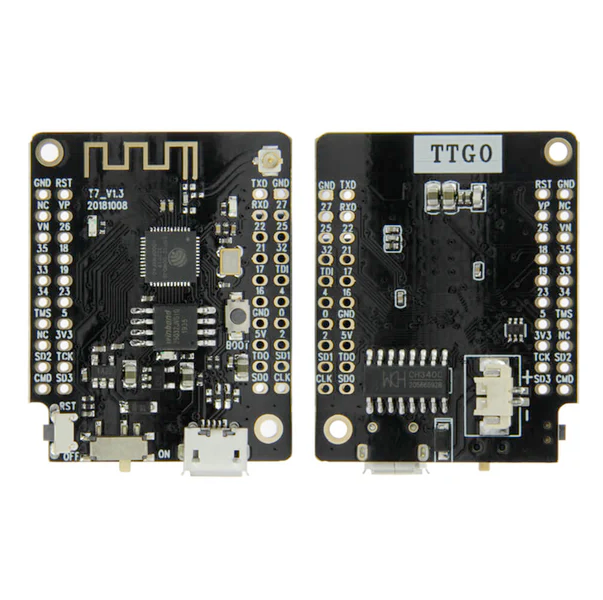LilyGo T-Eth Lite Development Board
Code name: LILYGO_T_ETH_LITE
LilyGo T-Eth Lite development board is based on esp32 microcontroller and uses xtensa architecture. This board has a maximum CPU frequency of 240 MHz and a flash size of 16MB.
About LilyGo T-Eth Lite
🚀 The LilyGo T-Eth Lite is an ESP32-based development board designed for Ethernet and IoT applications. Featuring a built-in LAN8720 Ethernet PHY, it enables wired network connectivity while maintaining ESP32's WiFi and Bluetooth functionalities. ⚡
📡 With WiFi 802.11 b/g/n and Bluetooth 4.2, the board provides dual-mode connectivity, making it ideal for networking and automation applications.
💾 The T-Eth Lite is equipped with 16MB Flash and 520KB SRAM, offering sufficient resources for a wide range of embedded and IoT projects.
LilyGo T-Eth Lite Technical Specifications
🛰️ Connectivity
🧠 Microcontroller
✨ Features
- 21 digital IO pins
- 22 external interrupt pins
- 6 analog input pins
- 14 PWM pins
LilyGo T-Eth Lite Pinout
✅ Safe Pins to Use
For general GPIO usage, these are the safest and most flexible choices:
Why Are These Pins Safe?
- Not involved in bootstrapping → No impact on device boot mode or system startup
- Not linked to flash memory or PSRAM → Won't interfere with storage or memory access
- Not dedicated to USB or JTAG → Free for general use without affecting debugging
- No special hardware connections → Freely assignable without internal conflicts
⚠️ Pins to Avoid or Use with Caution
Some pins are reserved for critical functions like bootstrapping, JTAG debugging, USB communication, and flash memory operations. Misusing these pins may lead to boot failures, programming issues, USB conflicts, or disruptions in flash storage.
Critical Pin Categories:
- 🛠️ Strapping Pins: Control boot behavior and flash voltage selection
- 🔗 JTAG Debugging Pins: Required for low-level debugging
- 🔌 USB Communication Pins: Used for USB Serial/JTAG communication
- ⚡ Flash Memory & SPI Pins: Connected to SPI flash memory and PSRAM
- 📡 UART Serial Communication Pins: Used for debugging and firmware uploads
| PIN | Label | Reason | Function |
|---|---|---|---|
| IO1 | U0TXD (GPIO1) | Connected to on-board USB-UART for uploading and logs; drives serial output at boot, so using as GPIO can disrupt programming or console. | 🔌 USB |
| IO2 | GPIO2 | If driven HIGH on reset (while IO0 is LOW), selects an unsupported SDIO boot mode, causing boot failure. | 🛠️ Strapping |
| IO3 | U0RXD (GPIO3) | Used for receiving data from USB-UART (programming); also pulled HIGH at boot for console communication, so using as GPIO can disrupt uploads. | 🔌 USB |
| IO16 | GPIO16 | Connected to internal PSRAM on PSRAM-enabled modules; not usable as GPIO on those modules. | ⚡ Flash |
| IO17 | GPIO17 | Connected to internal PSRAM on PSRAM-enabled modules; not usable as GPIO on those modules. | ⚡ Flash |
LilyGo T-Eth Lite Pin Mappings
This development board provides 21 digital IO pins, out of which 22 can be used as external interrupt pins , 6 as analog input pins and 14 pins have Pulse-Width Modulation (PWM) .
| Pin | Function | ESP Pin | Input/Output | Description |
|---|---|---|---|---|
| 1 | 3V3 | 3.3V | POWER OUTPUT | 3.3V power output |
| 2 | GND | GND | POWER GROUND | Ground connection |
| 3 | 5V | 5V | POWER INPUT | 5V power input |
| 4 | IO1 | GPIO1 | BIDIRECTIONAL | GPIO, ADC, I2C |
| 5 | IO2 | GPIO2 | BIDIRECTIONAL | GPIO, ADC |
| 6 | IO3 | GPIO3 | BIDIRECTIONAL | GPIO, ADC |
| 7 | IO16 | SPI_CS | BIDIRECTIONAL | GPIO, SPI Chip Select |
| 8 | IO17 | SPI_D | BIDIRECTIONAL | GPIO, SPI Data |
| 9 | IO18 | SPI_CLK | BIDIRECTIONAL | GPIO, SPI Clock |
| 10 | IO19 | SPI_Q | BIDIRECTIONAL | GPIO, SPI Q |
| 11 | IO21 | ETH_TX | OUTPUT | GPIO, Ethernet TX |
| 12 | IO22 | ETH_RX | INPUT | GPIO, Ethernet RX |
| 13 | IO23 | ETH_MDIO | BIDIRECTIONAL | GPIO, Ethernet MDIO |
Default Tools for LilyGo T-Eth Lite
| Bootloader tool | esptool_py |
| Uploader tool | esptool_py |
| Network uploader tool | esp_ota |
| Bootloader address | 0x1000 |
| Flash mode | dio |
| Boot mode | qio |
| Maximum upload size | 1280 Kb (1310720 B) |
| Maximum data size | 320 Kb (327680 B) |
The LilyGo T-Eth Lite development board by default uses esptool_py uploader tool, esp_ota network uploader tool for Over-the-air (OTA) uploads and esptool_py bootloader tool. The bootloader starts at address "0x1000". Flash mode and boot mode for LilyGo T-Eth Lite development board by default is dio and qio respectively.
